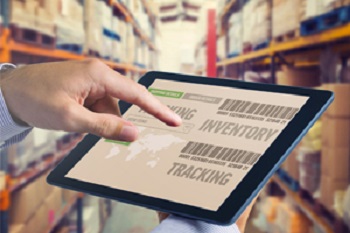There are many types modules used in Store management software that has become essential in carrying out business efficiently across various industries, from the manufacturing sector to the tech industry itself.
In a globalized era where international transactions are common, businessmen are flying overseas to check out new and innovative products and conducting business meetings over the Internet, it becomes crucial, if not mandatory, to allow machines to collate and organize the data according to a simple and flexible framework.
The use of cloud-based software has soared over the years due to the ease in having a centralized network of data, providing a wider picture of the overall profits and allowing a closer look at where refinements are necessary.
Modules Used in Store Management Software

The efficacy of a store management software is determined by which modules are included in the software and what features they have. These will determine the benefits derived from the software altogether. Here are the five fundamental modules necessary for the smooth running of the business:
1. Inventory Management: This module acts like a digital warehouse, with vital details included such as product history, product categorization, stock history and automatic stock-out reports. The product and stock history gives an idea of how frequently retailers need to buy them, hinting at a possibly high demand of the product. Classifying each product based on the type of good, price, shelf-life etc. allows smoother stacking of goods and can be easily resent to the distributor when the supply in retail stores is low. Automatic shortage reports are released as soon as the stock of a product is running low. Through this, suppliers are contacted immediately for restocking goods as soon as possible.
In advanced systems, there is also the option of choosing collaborative inventory, which includes vendor-managed inventory systems or VMIs. Though this comes at the cost of vendors having direct control over the delivery of a particular product, this means there is one less thing the manager has to worry about. All of this saves precious amounts of time and money as revenue losses due to decreased productivity are reduced significantly. This also increases the accuracy of inventory orders as less errors are made in sending out goods to retailers.
2. Inventory Tracking: Inventory management becomes toothless as a module if inventory tracking is also not included. Through barcodes or QR codes, holograms, RFID tags or traditional serial numbers, all of the products and their movements are tracked across its life cycle. This diminishes human errors drastically and quickens the speed of checkouts and billing at cash counters in retail stores. Audit trailing is also an important feature in this module. This allows you to recall products which may have been contaminated using advanced data analytics on traceability. Thus, only the products which are affected are called back; the rest are shipped according to their scheduled dates. Optimized routes for workers and for the products are also designed using this module, as a linear and smooth production line is formed. This reduces movement of goods and labor, boosting productivity and efficiency and helps to identify which products move slow or fast throughout the factory.

3. Order Management: By tracking and managing multichannel sales across nearby retailers, users have the capability to track different orders of customers, manage return of any non-perishable goods and monitor pricing increases or decreases according to economic fluctuations. Items for transport to other parts of the building or to other warehouses are marked with orders placed and the availability of a good is determined by the stock levels. In this way, customer satisfaction is kept on excellent levels.
4. Purchasing: The purchasing module works through creating new and finishing up purchase orders or POs, by streaming in data from other collaborative modules such as stock or inventory. Suppliers can be informed directly via email or phone to reduce the time spent. Different templates can be used to customize the management and arrangement of POs, and an automated system can be designed to alert suppliers and consumers if a good is short in supply. Purchasing orders may also consist of partial orders, i.e. orders that have yet to be confirmed or have some data missing, so these are monitored as well. Thus, a number of POs can be managed in bulk, and tracking backorders become faster and easier too.
5. Shipping: For e-commerce firms, the ability to ship overseas and deliver products within a stated period of time is very important for establishing their brand and for gaining publicity. Incorrect packages, dirty or unclean packaging and late deliveries can result in a giveaway to the customer, reducing customer fulfillment. A good software must be able to print labels, logos, barcodes and QR codes on packages and be integrated with third-party delivery organizations that ship worldwide. Multi-carrier shipping is carried out through orders dispatched as multiple shipments, ensuring that backordered goods are delivered at a later time. Advanced features include the identification of shipments or individual shipment products by a unique ID.
Optional modules may include modules regarding transfer management, which handles stock transfer and multi-location tracking services, reporting and analytics on stocks of various products, integration into other useful software such as CRM and an accounts management module which handles financial affairs, rendering the employment of an accountant useless.
In conclusion, these five modules will ensure a fully secure and functional storage management system, equipped with the most modern features which can help you get a competitive edge over your rivals in the market you are focusing on.
Such software is found in compatible form with other ERP systems or CRM software, where a centralized database is used as a conduit of all the data in the firm.
Our recommendation of using a software for such a platform is Odoo. Odoo is a user-friendly software built under the same UI which uses one app to do all the jobs in one: streamlining operations, managing invoicing and boosting sales.
It has many different apps including one for CRM and MRP, both of which includes the ability to customize and design a template for your storage software depending on what you are selling in the market.
Syncoria, a digital transformation company based in Canada, is an official Odoo Ready partner. To contact Odoo, call at +1 (416) 628-5522, or email them at odoo@syncoria.com.